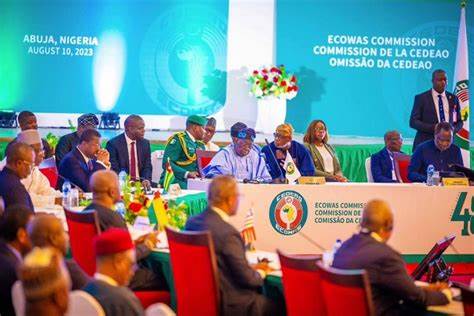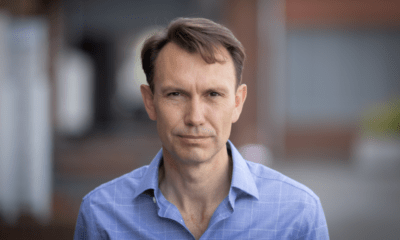Democracy & Governance
Death Of Democracy And The Birth Of Militocracy In West African States -By Nweke Daniels
Knowing that the rising coup d’état attempts in West Africa are symptoms of deeper underlying issues such as governance failures, socioeconomic disparities, and ethnic tensions. It is important for the leadership of this region to address these challenges by prioritizing the consolidation of democracy, strengthened by inclusive politics and resilient institutions to ensure that there is no room for governance failure that would give the military a reason to tak over power.

It is important to note that West Africa has long been grappling with political imbalance and instability, and in recent times, there has been a concerning rise in coup d’état attempts in the region. The political landscape has been marred by power struggles, corruption, and governance challenges, leading to a significant threat to democracy. This piece aims to delve into the causes behind the increasing coup d’état incidents, their effects on the region, and the critical role of democracy in promoting stability and progress to avert the continuity of the elected presidents overthrown.
To understand the current rise in coup d’état attempts, it is essential to consider the historical context of political instability in the region. Many West African countries gained independence from colonial rule in the mid-20th century, leading to the formation of new states and governing structures. However, the transition to democracy has been fraught with challenges due to weak institutions, ethnic tensions, and economic disparities.
As a result, about five West African States have lost their grip on democracy to the military juntas through a systematic and successful coup d’etat. First on the list is Mali. On August 18, 2020, a group of Malian colonels led by Assimi Goita ousted President Ibrahim Boubacar Keita, On April 20, 2021, Chad’s army took power after President Idriss Deby was killed on the battlefield while visiting troops fighting rebels in the north, on September 5, 2021, Special forces commander Colonel Mamady Doumbouya ousted President Alpha Conde, in January 24, 2022, Burkina Faso’s army ousted President Roch Kabore blaming him for failing to contain violence by Islamist militants and in the most recent is the Niger Republic coup. On Wednesday, 26 July, 2023, Niger’s presidential guards were held President Mohamed Bazoum inside his palace in the capital Niamey and takeover power.
The necessary question is, what are the Causes of the Rising Coup d’état in West Africa? As an African, a West African to be precise, one major cause of the rising coup is the Civilian Governance Failures. In many West African countries, governments have struggled to effectively address the needs of their citizens, leading to widespread dissatisfaction. Rampant corruption, inadequate public services, and lack of accountability have eroded public trust in democratic processes, pushing some factions to resort to violent means to seize power. You could see this in the faces of citizens who were rejoicing over the coup d’ etat.
Another fuel to the coup is Socioeconomic Disparities: Poverty, unemployment, and economic inequality have persisted in the region, creating a fertile ground for discontent and social unrest. Coupled with the lack of access to basic services, these challenges have fueled frustration and radicalization, making coup attempts an attractive option for some dissatisfied citizens.
It is also worth noting the role of Ethnic and Religious Tensions in the rising coups. It is not news that West Africa is a home to diverse ethnic and religious communities, and historical grievances have often led to tensions and conflicts. Exploiting these divisions, some political actors have used coup d’état attempts as a means to gain power and protect the interests of their respective groups.
As Juicy as the military takeover may look to citizens, considering the failures of the democratic leaders. It is however important to critically look at the Effects of the Rising Coup d’état and meritocracy at large. One of the challenges that arise in military rule is Humanitarian Crisis. Coup attempts often result in violence and bloodshed, leading to loss of lives, displacement, and humanitarian crises. The instability that follows can disrupt food security, healthcare, and education, exacerbating the suffering of vulnerable populations.
Another effect of the coup to consider is the Investor Confidence and Economic Impact. Political instability and uncertainty deter foreign investments and hinder economic growth. The unstable environment can negatively impact trade, employment, and development, perpetuating the cycle of poverty and underdevelopment.
Erosion of Democracy. Frequent coup attempts undermine the democratic process, eroding the trust of citizens in their government and institutions. This cycle of instability weakens the rule of law, stifles political participation, and limits the opportunities for positive change.
Amidst the challenges, the importance of democracy in West Africa cannot be overstated. Democracy, when functioning effectively, provides a framework for peaceful transitions of power, inclusive governance, and respect for human rights. It empowers citizens to participate in decision-making processes, promoting social cohesion and stability and this calls for the democratic elected Presidents and officials to practice Inclusive Politics to promote an inclusive political environment that accommodates diverse perspectives and ensures the representation of all segments of society is vital for fostering stability and reducing tensions.
To promote Economic Development by addressing socioeconomic disparities and ensuring that citizens have access to opportunities and feel invested in the democratic process. Knowing that the rising coup d’état attempts in West Africa are symptoms of deeper underlying issues such as governance failures, socioeconomic disparities, and ethnic tensions. It is important for the leadership of this region to address these challenges by prioritizing the consolidation of democracy, strengthened by inclusive politics and resilient institutions to ensure that there is no room for governance failure that would give the military a reason to tak over power.
Facebook @Nweke Daniels










